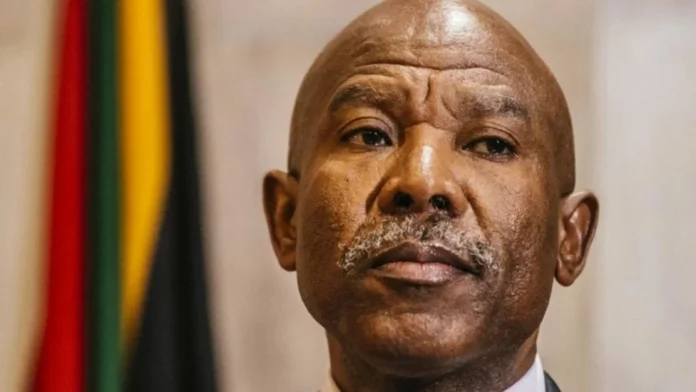The South African Reserve Bank has slashed its key repo rate by 25 basis point (bps), to a new all-time low of 3.50%, the central bank’s boss lesetja Kganyago said today.
The central bank’s decision means that the prime commercial lending rate that banks use to lend to consumers has also been cut from 7.25% to 7%.
The latest cut means that the benchmark repo rate has been cut by 300 basis points or 3% this year, in response to the devastating impact of COVID-19 on the economy and incomes.
The Reserve Bank also said it now expects the economy to contract by 7.3%, worse that the 7% contraction it predicted at its last meeting in May.
Kganyago warned that Job losses are also expected to rise further, and that the cutting of interest rates was meant to alleviate pressure on households and businesses.
“Monetary policy can ease financial conditions and improve the resilience of households and firms to the economic implications of Covid-19,” Kganyago said.
“In addition to continued easing of interest rates, the SARB has relaxed regulatory requirements on banks and has taken important steps to ensure adequate liquidity in domestic markets. These actions are intended to free up more capital for lending by financial institutions to households and firms,” he added.
FNB CEO Jacques Celliers said that the lender will be reducing its prime lending rate to 7% from 7.25% with effect from tomorrow.
“Post the Covid-19 crisis, we hope for a robust recovery in confidence relative to present levels. At this time, savings become an extremely important safety net for both households and businesses. With careful budgeting and prioritising of cash reserves, this can be achieved,” Celliers said.
Janine Horn, Financial Planner at Momentum Financial Planning says that South Africans who are fortunate enough to have a measure of disposable income, can take steps to safeguard every single cent that they get.
“Life as we know it has changed, the environment and how we do things have changed. For an example, many fortunate South Africans are working from home, meaning they could be saving up on transportation money. Every single cent counts, and every saving in one’s budget should be channeled directly to a savings jar,” advises Horn.



